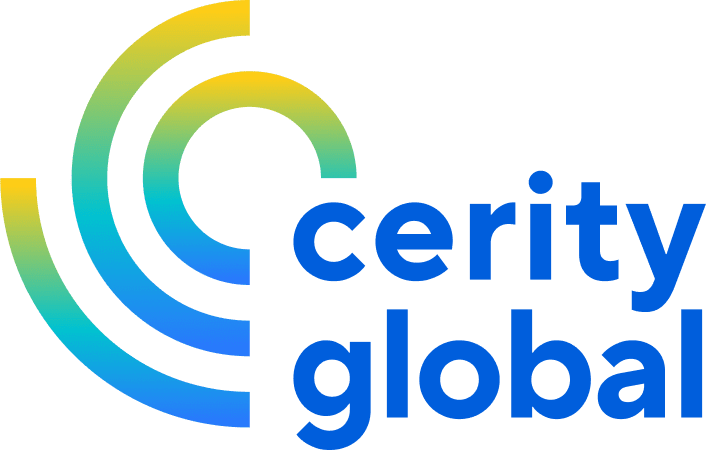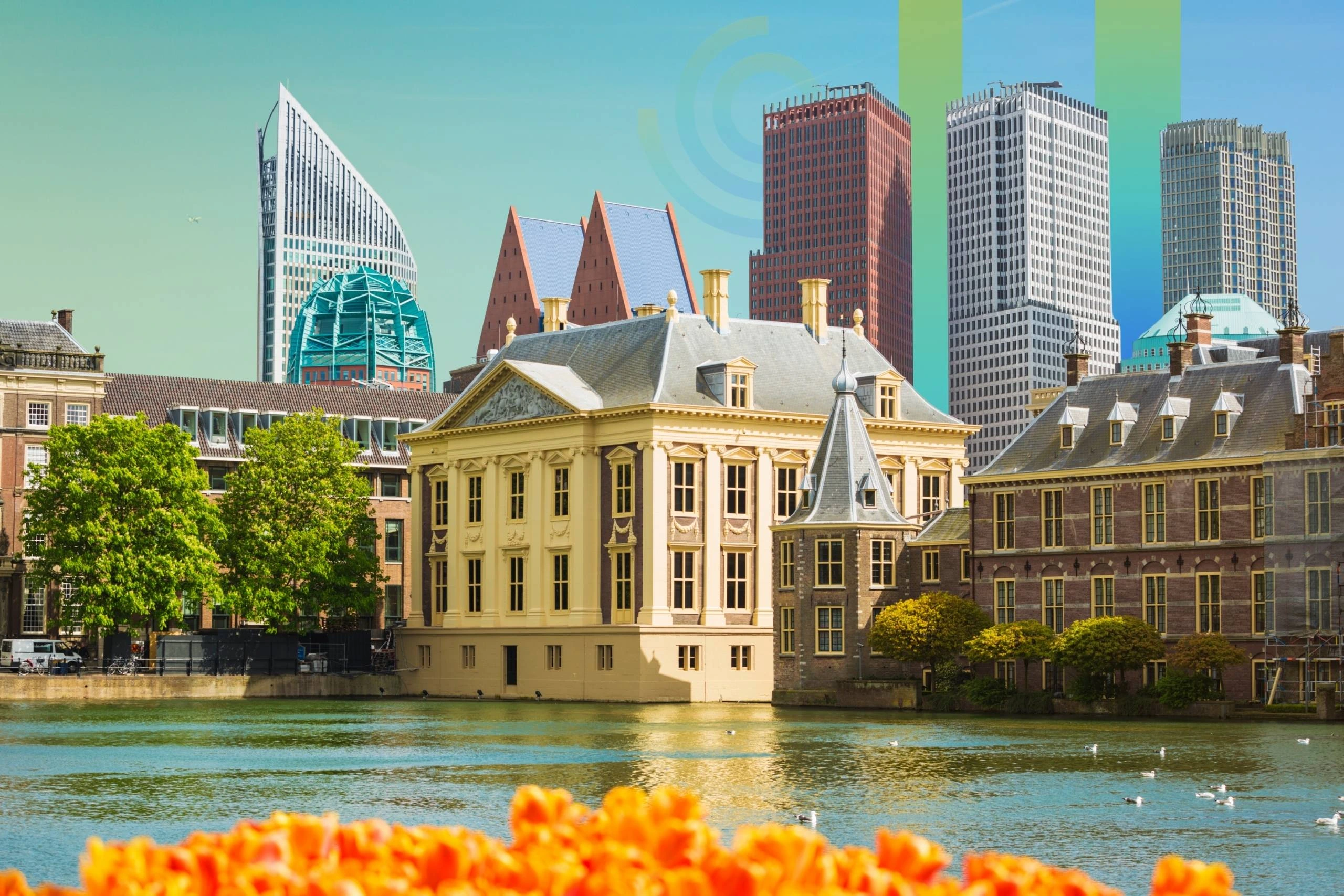The Netherlands remains Europe’s one of the most attractive destinations for global expansion. It has a stable, high-income economy, strategic location in Europe, and a pro-business climate. A gateway to Europe, it offers world-class infrastructure, competitive tax frameworks, and access to one of the most highly skilled workforces. The country offers an open economy with a wide tax treaty network and competitive incentives for international companies. The European Commission forecasts predict ~1.3% GDP growth in 2025, with robust domestic demand and investment.
While the Netherlands remains a top pick among European business destinations, Ireland draws firms with its research‑friendly policies and innovation culture. And for those looking further afield, the UAE’s free zones and geographic positioning add a powerful alternative.
Related: Doing Business in the UAE in 2025
Quick Facts for 2025:
- Strategic Location: 95% of Europe’s major consumer markets are reachable within 24 hours from Amsterdam or Rotterdam.
- Corporate Tax Rates: 19% on first €200,000 in profits, rising to 25.8% thereafter.
- R&D Tax Incentives:
- WBSO Tax Credit: Up to €20,000 per R&D employee annually for companies
- Innovation Box: 9% tax rate on profits from self-developed IP
- Self-employed R&D credit: €15,738 in 2025, plus €7,875 starter supplement
- Business-friendly Environment: Flexible incorporation, digital infrastructures, and investor treaties like DAFT.
- Dividend Tax: BVs must withhold 15% of dividend tax when distributing profits to shareholders. This may be reduced under tax treaties.
Why Netherlands Matters for Global Expansion in 2025
The Netherlands offers a combination of strategic advantages that make it especially attractive for companies expanding into Europe:
- Gateway to Europe: Located at the heart of Western Europe, the Netherlands gives companies rapid access to key consumer markets.
- Competitive Tax Frameworks: With a two‑tier corporate income tax (19% on the first €200,000 in profits, 25.8% on profits above that) the Netherlands balances moderate base rates with incentives for innovation.
- Strong Innovation & R&D Ecosystem: The Netherlands ranks among the top EU countries for innovation, backed by robust R&D incentives like the WBSO tax credit, research credits and collaborations between universities, government and the private sector.
- Talent, Infrastructure & Legal Certainty: A highly educated, multilingual workforce, excellent infrastructure (transport, digital), and a transparent regulatory & legal framework make doing business smoother. The Netherlands also has broad tax treaty coverage and offers clarity on tax rulings and compliance, making it easier for multinationals to plan with confidence.
- Quality of Life & Stability: Beyond business metrics, the Netherlands scores highly on work‑life balance, quality of public services, safety, and ease of living for expatriate employees. Stability in policy and political institutions further enhances its appeal.
Related: Top 15 Countries by GDP in 2025
Business Structures in the Netherlands in 2025
Companies can choose from several legal structures depending on their operations and market entry goals. The most common include:
- Private Limited Company (Besloten Vennootschap – BV): The most popular entity for foreign investors. Requires a minimum share capital, allows flexible ownership, and shareholders’ liability is limited to their investment.
- Public Limited Company (Naamloze Vennootschap – NV): Suitable for larger companies planning to list shares or attract substantial investors. Requires a minimum share capital of EUR 45,000.
- Branch Office: An extension of a foreign parent company. No separate legal entity status, but subject to Dutch regulations and taxation.
- Representative Office (Vertegenwoordigingskantoor): For marketing or research purposes only, not for commercial activity.
Cerity Global advises clients on the right structure and manages the full legal entity setup process, including incorporation, licensing, HR, payroll, and compliance.
Related: The Netherlands Country Page
Step-by-Step: Setting Up a Business in the Netherlands
The legal entity setup process in the Netherlands typically takes 4 to 8 weeks. The main stages are:
- Planning & Documentation: Decide on the entity type, draft Articles of Association, and gather shareholder documents.
- Notarial Deed & Registration: A Dutch civil law notary finalizes incorporation documents. The company is then registered with the Dutch Business Register (KvK).
- Bank Account & Share Capital Deposit: Open a Dutch corporate bank account and deposit the required share capital.
- Tax & Social Security Registration: Register with the Dutch Tax and Customs Administration for corporate tax, VAT, and employee social contributions.
- Operational Setup: Establish HR, payroll, and accounting systems. For hiring employees, contracts must comply with Dutch labor law, which mandates statutory benefits.
Banking Considerations: Dutch banks have increased due diligence requirements. Having a physical presence, a clear business plan, and substantial initial deposits (€10,000+) significantly improves approval chances. Some banks may require a personal presence for account opening.
Cerity Global integrates HR, payroll, and employee benefits, ensuring businesses stay compliant from day one.
Related: Legal Entity Setup in 2025
Cost of Doing Business in the Netherlands (2025)
Costs vary based on the entity type and scale of operations. While exact setup fees differ, businesses should plan for:
- Incorporation fees: Notary and registration costs.
- Ongoing taxes:
- VAT: Standard rate of 21% (reduced rates of 9% and 0% for specific goods/services).
- Corporate tax: 19% up to EUR 200,000; 25.8% above.
- Employment costs: Employers must provide social security, health insurance, paid leave, and pensions, adding ~20 to 25% to gross salary costs.
Corporate tax, VAT, and payroll filings in the Netherlands require accurate accounting and timely compliance. Cerity Global ensures businesses avoid penalties and stay fully compliant from day one.
Key Opportunities in the Netherlands
The Dutch economy is diverse, innovation driven and the high-growth sectors include:
- Technology & Innovation: The Netherlands is a leader in AI, fintech, semiconductors, and digital infrastructure. Eindhoven’s “Brainport” region is recognized globally as a top tech hub.
- Logistics & Trade: Rotterdam and Schiphol make the Netherlands the gateway to Europe. Strong logistics, supply chain, and distribution opportunities.
- Renewables & Clean Energy: Aligned with the EU Green Deal, the Netherlands is investing in offshore wind, hydrogen, and circular economy initiatives.
- Financial Services: Amsterdam is a major European financial hub, drawing FinTech companies, asset managers, and insurance providers.
Much like Ireland, the Netherlands offers strong innovation incentives, a highly skilled workforce, and attractive tax frameworks. Meanwhile, the UAE differentiates itself with near‑zero corporate tax in its free zones and strategic access to Middle Eastern and Asian markets.
Related: Doing Business in Ireland in 2025
Challenges to Consider
- Tax & Compliance Complexity: Companies must meet strict corporate tax, VAT, and transfer-pricing rules. Non-compliance can result in penalties, so expert tax and compliance support is essential.
- Employment Regulations: Dutch labor laws mandate employee protections, collective agreements, and statutory benefits. A strong HR, payroll, and employee benefits systems are essential to maintaining compliance and supporting a diverse workforce.
- High Costs of Living/Operations: Amsterdam and other major cities have rising real estate and labor costs. Budgeting accordingly is critical.
- Employees Protection: Dutch employment law includes strong protections for employees, such as collective labor agreements (CAOs). Companies must carefully manage payroll, benefits, and compliance to avoid disputes
Cerity Global supports clients with HR, payroll, accounting, and compliance services reducing risks and ensuring smooth operations.
Related: EOR vs Legal Entity Setup in 2025: Which Is Best for Global Expansion?
FAQs on Doing Business in the Netherlands (2025)
What is the corporate tax rate in the Netherlands?
Corporate tax is:
- 19% on taxable income up to €200,000
- 25.8% for taxable income above €200,000
Can foreigners fully own Dutch companies?
Yes, 100% foreign ownership is allowed in BVs and NVs.
How long does a company setup take?
It varies by structure. A legal entity setup in the Netherlands typically take 1 to 3 months. A full setup (from planning to bank account) is often 6 to 12 weeks, assuming documents are in order.
Is a physical office required?
Yes. A Dutch business address is required for registration.
Can I hire employees directly?
Yes, but you must comply with Dutch labor law, payroll contributions, and benefits.
What is "substantial interest" and how does it affect taxation?
If you own 5% or more of a BV’s shares, you have a “substantial interest.” Dividends and capital gains from this holding are taxed at personal income tax rates (26.9% up to €67,804, 31% above) rather than corporate tax rates.
Can I set up a Dutch BV remotely?
Yes, but you’ll need a Dutch notary and local business address. Remote incorporation is possible through qualified service providers, though banks typically require ultimate beneficial owners to visit in person.
What are the main tax advantages of incorporating in the Netherlands?
Key advantages include an extensive tax treaty network (95+ countries), an Innovation Box 9% rate for R&D, participation exemption for qualifying shareholdings, and access to EU single market.
Why Expand to the Netherlands in 2025?
The Netherlands combines EU market access, advanced infrastructure, and a highly skilled workforce, making it one of the most attractive destinations for international expansion. Whether entering Europe for the first time or scaling existing operations, businesses benefit from a stable economy, digital leadership, and progressive policies.
With Cerity Global’s global expansion services companies can set up a legal entity, hire directly, and manage payroll, accounting, HR, and tax compliance across 170+ countries.
How Cerity Global Can Help
Cerity Global specializes in helping companies expand into the Netherlands and across Europe. We provide end-to-end support: from legal entity setup and incorporation to HR, payroll, benefits, accounting, and compliance.
Ready to Expand into the Netherlands?
Cerity Global helps companies with legal entity setup, payroll, tax, compliance, and HR support across the Netherlands, Europe, and 170+ countries worldwide.

